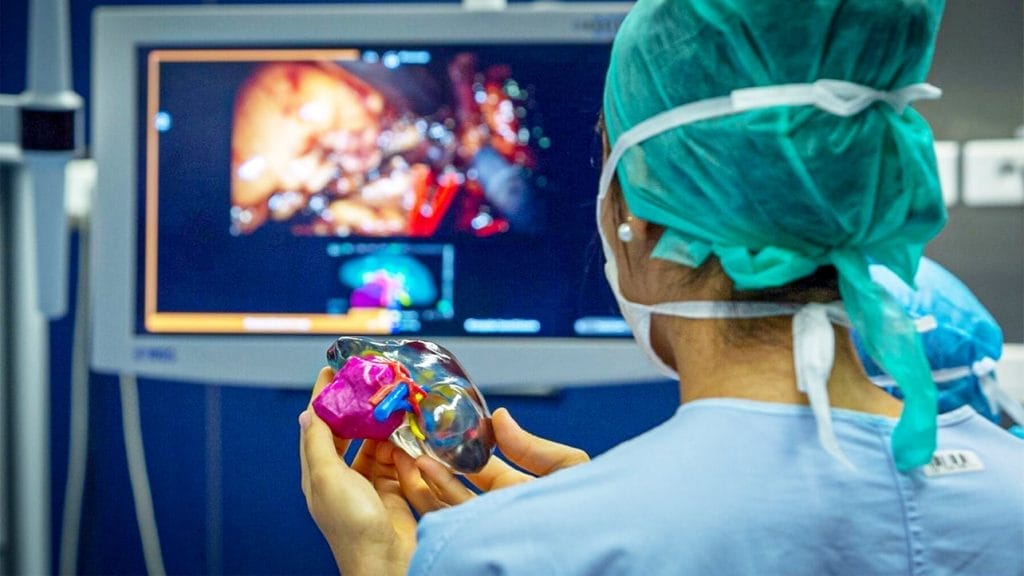The Vital Role of Different Types of Doctors in Healthcare
June 14, 2024 2024-06-14 7:57
The Vital Role of Different Types of Doctors in Healthcare
Healthcare is a complex and multifaceted field that relies on the expertise of various types of doctors to ensure the well-being of individuals and communities. Each type of doctor specializes in a specific area of medicine, bringing unique skills and knowledge to address diverse health needs. This article explores the importance of different types of doctors and their contributions to maintaining and improving health.
Primary Care Physicians
Primary care physicians (PCPs) are the cornerstone of healthcare, serving as the first point of contact for patients. They provide comprehensive and continuous care, addressing a wide range of health issues. PCPs include family physicians, internists, and pediatricians.
Family Physicians
Family physicians offer holistic care to patients of all ages, from newborns to the elderly. They manage chronic conditions, perform routine check-ups, and provide preventive care, such as vaccinations and health screenings. Their broad scope allows them to address various health concerns within the context of family dynamics and community.
Internists
Internists specialize in the diagnosis and treatment of adult diseases. They manage complex medical conditions, such as diabetes, hypertension, and heart disease. Internists play a crucial role in coordinating care, especially for patients with multiple chronic conditions, ensuring that all aspects of their health are addressed.
Pediatricians
Pediatricians focus on the health and development of children from infancy through adolescence. They provide preventive care, diagnose and treat illnesses, and guide parents on proper child health practices. Pediatricians play a key role in monitoring growth and development, ensuring that children reach their full potential.
Specialists
Specialist doctors focus on specific areas of medicine, providing expertise in diagnosing and treating particular conditions. Their specialized knowledge is essential for managing complex or rare health issues.
Cardiologists
Cardiologists specialize in heart and vascular diseases. They diagnose and treat conditions such as heart attacks, arrhythmias, and heart failure. Cardiologists also provide preventive care, helping patients reduce their risk of cardiovascular diseases through lifestyle modifications and medication management.
Oncologists
Oncologists are experts in cancer diagnosis and treatment. They guide patients through the complex journey of cancer care, from diagnosis and treatment planning to palliative care and survivorship. Oncologists work closely with other healthcare providers to deliver comprehensive, multidisciplinary care tailored to each patient’s needs.
Neurologists
Neurologists focus on disorders of the nervous system, including the brain, spinal cord, and peripheral nerves. They diagnose and treat conditions such as epilepsy, stroke, multiple sclerosis, and Parkinson’s disease. Neurologists’ expertise is crucial for managing these complex and often debilitating conditions.
Orthopedic Surgeons
Orthopedic surgeons specialize in the musculoskeletal system, treating injuries and conditions affecting bones, joints, ligaments, and muscles. They perform surgeries to repair fractures, replace joints, and correct deformities, helping patients regain mobility and function.
Dermatologists
Dermatologists focus on skin, hair, and nail conditions. They diagnose and treat a wide range of issues, from acne and eczema to skin cancer. Dermatologists also provide cosmetic treatments to enhance the appearance and health of the skin.
Surgeons
Surgeons perform operations to treat injuries, diseases, and deformities. They use their expertise to conduct complex procedures that can be life-saving or improve the quality of life for patients.
General Surgeons
General surgeons perform a variety of surgeries, including appendectomies, hernia repairs, and gallbladder removals. They are trained to handle a wide range of surgical emergencies and work closely with other specialists to provide comprehensive care.
Cardiothoracic Surgeons
Cardiothoracic surgeons specialize in surgeries of the heart and chest. They perform procedures such as coronary artery bypass grafting, heart valve repair, and lung resections. Their work is critical in treating life-threatening cardiovascular and thoracic conditions.
Neurosurgeons
Neurosurgeons operate on the brain and spinal cord to treat conditions such as tumors, aneurysms, and spinal disc herniations. Their delicate and precise work is essential for addressing complex neurological issues and improving patients’ quality of life.
Importance of Multidisciplinary Care
The collaboration between different types of doctors is crucial for providing comprehensive and effective healthcare. Multidisciplinary care teams bring together diverse expertise to address the complex and interconnected nature of health issues. This collaborative approach ensures that patients receive holistic and well-coordinated care, improving outcomes and enhancing patient satisfaction.
Coordinated Care
Coordinated care involves the seamless integration of services provided by various specialists and primary care physicians. This approach minimizes gaps in care, reduces the risk of medical errors, and ensures that all aspects of a patient’s health are addressed. Primary care physicians often play a key role in coordinating care, ensuring that patients receive the appropriate referrals and follow-up care.
Patient-Centered Care
Patient-centered care focuses on the needs and preferences of patients, ensuring that they are active participants in their healthcare decisions. Different types of doctors contribute to this approach by providing specialized knowledge and personalized care plans that respect patients’ values and goals. This collaborative effort enhances the overall patient experience and promotes better health outcomes.
Conclusion
The importance of different types of doctors cannot be overstated. Each type of physician brings unique skills and expertise to the healthcare system, addressing a wide range of health needs and ensuring comprehensive care. By working together, these healthcare professionals provide high-quality, patient-centered care that improves the health and well-being of individuals and communities. As healthcare continues to evolve, the collaborative efforts of diverse medical specialists will remain essential for meeting the complex and ever-changing health needs of the
Related Posts
The Vital Role of Different Types of Doctors in Healthcare
June 14, 2024 2024-06-14 7:57Popular Tags






























